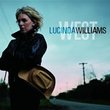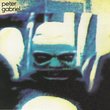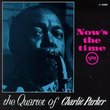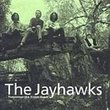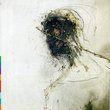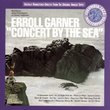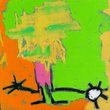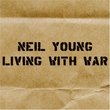| All Artists: Rahsaan Roland Kirk Title: Rip, Rig & Panic/Now Please Don't You Cry, Beautiful Edith Members Wishing: 8 Total Copies: 0 Label: Polygram Records Original Release Date: 5/8/1990 Re-Release Date: 3/21/1990 Genres: Jazz, Pop Styles: Modern Postbebop, Bebop Number of Discs: 1 SwapaCD Credits: 1 UPC: 042283216426 |
Search - Rahsaan Roland Kirk :: Rip, Rig & Panic/Now Please Don't You Cry, Beautiful Edith
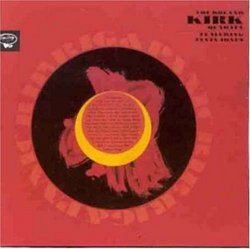 | Rahsaan Roland Kirk Rip, Rig & Panic/Now Please Don't You Cry, Beautiful Edith Genres: Jazz, Pop
Roland Kirk was a sublime one-man musical circus, whether playing three reeds at once, overblowing a flute, blasting a whistle to end a solo, or simply playing tenor saxophone with as much passion and invention as almost a... more » |
Larger Image |
CD DetailsSynopsis
Amazon.com Roland Kirk was a sublime one-man musical circus, whether playing three reeds at once, overblowing a flute, blasting a whistle to end a solo, or simply playing tenor saxophone with as much passion and invention as almost any other musician in jazz. This CD combines two complete Kirk LPs, Rip, Rig and Panic from 1965 and Now Please Don't You Cry, Beautiful Edith from 1967. The former is justifiably one of Kirk's most famous records, and it has possibly the most incendiary backing group he ever recorded with--secure, inventive, and prodding. Fueled by Jaki Byard's contrapuntal comping and flights into stride and atonality, Richard Davis's edge-of-the-beat bass lines, and Elvin Jones's polyrhythmic drumming, Kirk responds aggressively. His tenor improvisations on "No Tonic Pres" and "From Byas, Bechet, and Fats" are volcanic, while his manzello (a single reed in the soprano saxophone range) is piquantly lyrical on "Black Diamonds." Always an innovator, Kirk adds electronically altered sounds to "Slippery, Hippery, Flippery" and shattering glass to the brilliant title piece. The later session is relatively subdued but still distinguished, with a more conventional rhythm section in pianist Lonnie Liston Smith, bassist Ronnie Boykins, and drummer Grady Tate. "Blue Rol" has Kirk paying glorious tribute to the Ellington reed section, playing three horns at once before using circular breathing on manzello and then turning in a tenor solo worthy of an Ellingtonian like Ben Webster or Harold Ashby. "Why Don't They Know" is percolating bossa nova, while the title tune is a beautiful ballad. This is essential Kirk, and also a perfect introduction to his work. --Stuart Broomer Similarly Requested CDs
|
CD ReviewsWhy Don't They Know? 02/25/2000 (5 out of 5 stars) "Shamefully overlooked, Rahsaan Roland Kirk was a rare talent, who like his one-time boss Charles Mingus, could take a totally unique approach to music that sounded both orthodox and unorthodox at the same time. Kirk's 'gimmick' of playing several reeds at once was no crutch when the slightly off-kilter sound it produced always matched the music perfectly. Besides, can Kenny G do anything like that today! Any of the 4 or 5 Kirk Cd's I own merits a strong 4 stars, but this one is the pick of the litter because it showcases Kirk's overall abilities just a little better than the rest. A two-fer of albums recorded in the mid-sixties, Kirk stretches beyond We Three Kings, before subduing himself just a bit for The Inflated Tear. "Rip Rig and Panic" is a rare setting of Kirk backed up by big-name cats: pianist Jaki Byard, bassist Richard Davis, and the super bad Elvin Jones. Byard's sax-like piano playing fits well with Kirk's sax-like manzello. Elvin, sheesh, what can I say? His drum solo on "Rip Rig and Panic" is classic.On "Beautiful Edith", Kirk still gets adequate support from musicians like Grady Tate and Lonnie Liston Smith, but the distinguishing characteristic here is the range of Kirk's comping. He goes from straight blues (Blue Rol), to Slavic (Silverization) to rock 'n' roll (Fallout), demonstrating more than a passing knowledge of each muscial form.Kirk, naturally, dives into a variety of horn-like instruments, sometimes playing up to four at once. Sometimes he cops Rollins, other times Trane, occasionally playing at a high level even for JC, but still sounding like himself. And yet there are times where Kirk sounds so overtly sentimental, you can sense he does it to toy with the listener. Even so, his beautiful, straight treatment of "Alfie" is a pleasure to hear.On the brief bossa nova "Why Don't They Know" he dispenses with a solo altogether in favor of some spoken, thinly-veiled social commentary. In it he laments that "after 15 years, after 25 years, they should know by now". When you listen to this brilliant piece of work by a man dead since 1977 and still virtually unknown by even some in jazz circles, you'll be wondering the same thing too." An Ideal Port Of Entry Into Rahsaanapolis El Lagarto | Sandown, NH | 05/27/2007 (5 out of 5 stars) "This CD combines two of Roland Kirk's most celebrated albums, one volcanic, the other luscious. Rip, Rig and Panic is renowned because of the astounding line-up, Jaki Byard on piano, Richard Davis on bass, and the redoubtable Elvin Jones kickin' skins. (Jones has never sounded better.) The other, Now Please Don't You Cry, Beautiful Edith, sounds like lounge jazz by comparison. The lineup is strong, but simply not in the same league as Rip, Rig and Panic. Still, the album contains some of Rahsaan's most appealing work, including the title track. In this respect it provides listeners, especially, newcomers, a good overview of the diverse landscapes of Rahsaanapolis. This said, it would require a truck equipped with extra heavy-duty suspension to deliver the box set providing a comprehensive tour of Rahsaanapolis. Kirk was a man of profound contradictions, relentless experimentation, and an unquenchable appetite for music. He has been largely overlooked by jazz historians (to say nothing of the public!) and unfairly tagged as a novelty act because of his propensity for playing multiple horns simultaneously and actually making his own reed instruments out of bits and pieces of other reed instruments. Rock producer Billy Graham once said of Kirk, "He wasn't just angry, he was Nina Simone angry." True, and yet he was capable of playing music so fragile and beautiful it might reduce a serial killer to tears - check out I Talk With The Spirits. One of Kirk's many contradictions was that, despite his intense need to push music into uncharted territory - frequently in several directions at once - listening to him was always a Master's Class in music history. No jazz musician has ever been so aware of his roots, or anxious to share them with you. Who else could take you from Sidney Bechet, Don Byas, and Fats Waller all the way to Burt Bacharach and Hal David - and have the trip make sense? At one point in the breathtaking album Rahsaan Rahsaan, Kirk says, "Thank you, Bird" in such a casual, comfortable tone of voice it's as though Charlie Parker had just left the room. In a sense, that's exactly what did happen, because the musicians Kirk studied came alive in his music, in his respect for them and in his confidence as he interpreted them and developed their ideas. It's tempting to point out that Kirk was blind, and perhaps, like others before him, his stunning ear was partly attributable to this. But for Kirk, a heightened ability to listen was only the starting point. Kirk played everything he touched, and he played with unparalleled intensity. His flute playing was memorable, but his tenor sax work was simply off the map. Kirk belongs in the pantheon with Lester Young, Charlie Parker, Eric Dolphy, and John Coltrane - indeed, he's already there, it's just that the mainstream hasn't noticed yet. I'm not aware of any Rahsaan Roland Kirk CD that isn't worth the price of admission, but for veterans and first time visitors to Rahsaanapolis alike, this CD is especially select." Roland Kirk Rips.....Not To Mention Rig & Panic! Andrew Stevenson | Union Springs, New York | 08/22/2004 (5 out of 5 stars) "Because he played multiple instruments at the same time Roland Kirk sometimes got the rap that he was gimmicky. He was not gimmicky, he was unique. And if you want to discuss single instruments he was a master tenor saxophonist. "Rip, Rig and Panic" is one of the most unique and passionate recordings ever made. (A word of warning: it is not music for those who like their jazz playing quietly in the background.) Not only do you get Roland at his inventive best, you also get the always fascinating Jaki Byard on piano and the fiery rhythm section of Richard Davis and Elvin Jones. And the fact that you also get a second Roland Kirk recording, "Now Please Don't You Cry, Beautiful Edith," on this CD makes it a doubly appealing purchase for those who want some Kirk in their collections. While not in the same league as "Rip...," "...Edith" is a fine outing for Kirk, pianist Lonnie Liston Smith, bassist Ronald Boykins, and drummer Grady Tate. I once had the pleasure of hearing Roland play in person. He ripped as he does on "Rip, Rig and Panic.""
|

 Track Listings (15) - Disc #1
Track Listings (15) - Disc #1